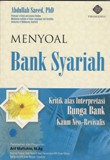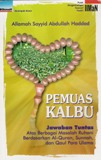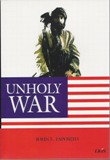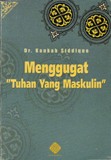Reading compiled readings, detached from their whole-book context, is sometimes like the three blind men and the elephant. I am not really sure about what I get from reading the three articles. In addition I am not trained as an anthropologist nor historian, to whom the articles might address. Among three, only the second article, “Boundary Displacement: the state…”, that I would give a longer comment. So let me first give a brief comment for the first and third articles.
My first impression about Invisible Cities -- without knowing who the author is and what kind of book is -- is that it must not, if you let me call it, be a “scientific” book. It must be a very exciting novel written by a talented novelist.
I was curious if I correctly guessed it and, as it is always my case, I google Italo Calvino. To my surprise, Google provides me many links and I choose this Wikipedia link. (Being an Indonesian and working on political Islam, I have enough excuse not to know him, though.)
It is clear now for me (like a blind man seeing the whole elephant after a successful surgery) that the article is a part of one of his most read novels. Well, as a novel, it just makes sense that the book presents too many details for my “academic expectations.” The details, however, are necessarily helpful to bring a reader to an exotic imagined world Calvino created (I am still not sure if they are Calvino’s own imagined descriptions or Marcopolo’s).
Because of the nature of this work, a novel, the book is a good example of “imagining” others. A novel does create an imagined object a reader would always bear in his mind about the object – the readers might be like Khan, captured in the first impression more than the later even more accurate and representative information they might finally encounter in their own travel to the East: “The new fact received a meaning from the emblem…” [p.22], as we put this novel as an emblem for the Western reader.
While a reviewer of Invisibles Cities said, “Trying to actually describe the book is a frustrating, almost futile attempt ….” I would argue in almost similar vein for the third article. While the title is “Theory’s Imaginary Other: American Encounters with South Korea and Japan”, the article did not really deal with American encounters with Japan. It is confusing to understand his presentation of a French poet Henri Michaux’s encounter with Japan as a representation of American encounter with Japan. Is he trapped in the same bipolar East/West he criticizes, in which a Frenchman can represent an American for their single “Westerness”?
I would like to change the title, therefore, to make sense this article: “American encounter with South Korea”. In that way, then, Wilson successfully gives the reader a point about how Fulbright-sponsored anthropological research, P.J. O’Rourke’s gonzo journalism, and NBC’s coverage have “misrepresented” – if the “correctly representing” is somehow possible – Korea.
The second article is the one I love most because this short paper really poses many important questions about our very being as a researcher or scholar. I like this sentence, however, to begin with, “why does this surprise you?” If I had to answer, I would say that I am surprised not because I don’t know but because I finally find someone who can articulate my personal concern of being a grantee (a student receiving foreign money for his study).
When I told my family and extended family, living in a far away place where the internet is unthinkable “creature” (yes, this is our Indonesian way to express a novel technology we are not familiar with), that I would study at an American university, they just have hard time to make it sense: for free and for what? Why does Bush (the most hated American in Indonesia but not interchangeable with America as a nation) give you this scholarship?
Yes, it was not easy. I had been trained as an Islamic scholar (you would call me a cleric if you knew my previous trainings), and I have to forgo my supposedly credibility because I am now “Americally” educated, for which the Islamist would easily accuse me of being an American puppet if I write a liberal piece in an Indonesian daily.
It was also hard for me to get this scholarship. Like the way we define area study, I had this question to define myself: can I describe myself as the one who works on classical Islamic law to get a Fulbright scholarship? I doubted. Thus, to make sure that I am eligible for the scholarship, I was defining myself as the one who works on the conflict between democracy and Islamic law. I thought democracy is more “selling” than Islamic law, and here I am.
I fully agree with Cuming to “abolish the CIA and get the intelligence and military agencies out of free academic inquiry”; but if that is the only way to get funds for our projects, why, it seems to me, cannot we simultaneously get fund and be independent? To make it less abstract, did Kennan write the famous “X document” only to satisfy Washington DC? If I get fund from CIA to study Islamic terrorism, for example, I do not think that the agency expects me not to work independently. Otherwise, they will not get a right and “objective”, if any, information about a terrorist group they expect to handle.
thematic category
Sunday, January 7, 2007
Global Asia (Homework)
Posted by Arif Maftuhin at 9:43 PM
Subscribe to:
Post Comments (Atom)










0 comments:
Post a Comment